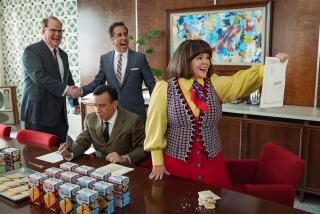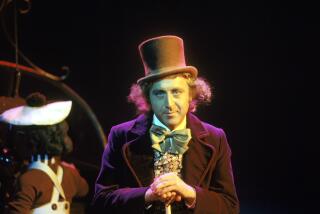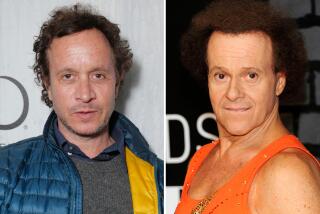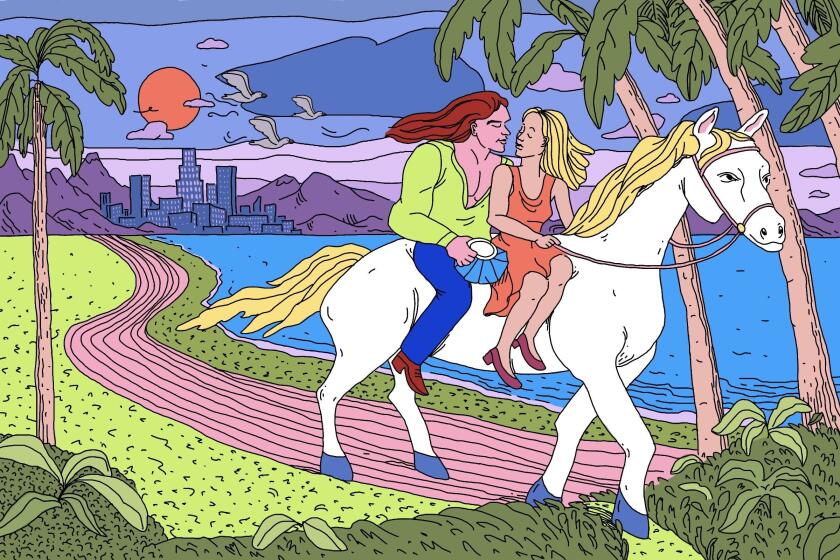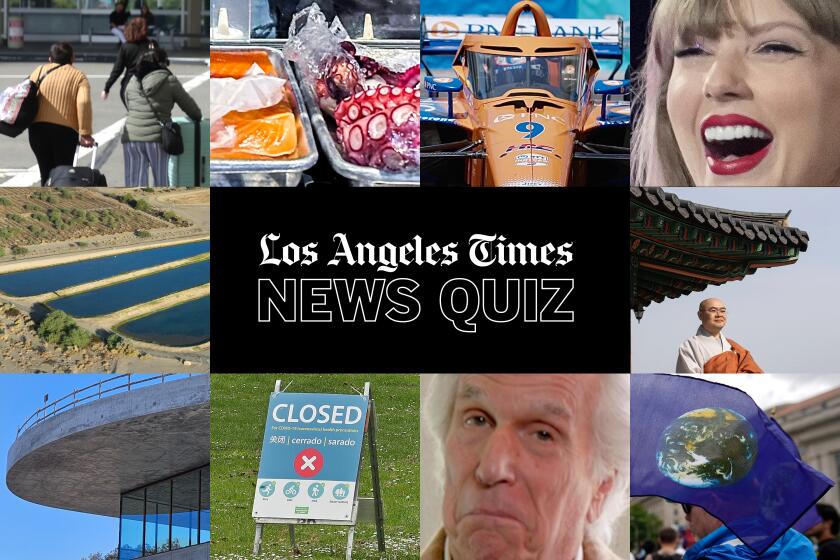First Act
The big surprise in Milk, the new film about murdered gay activist Harvey Milk that opens in December, isnt that Sean Penn is totally credible as a homosexualwhen is Sean Penn ever not remarkable?but that Howard Rosenman appears in several scenes.
Howard Rosenman an actor? He has been an iconic producer for three decades, with credits ranging from The Main Event and Resurrection to Father of the Bride and Buffy the Vampire Slayer. He has been executive producer of two award-winning films about the AIDS crisis and the history of gays in cinemaCommon Threads: Stories from the Quilt (an Oscar and a Peabody) and The Celluloid Closet (another Peabody).
In 1989, he saw that homebound sufferers of AIDS and other life-threatening diseases in Los Angeles werent always able to feed themselves, and he became a major fundraiser and founding board member for Marianne Williamsons Project Angel Food, which prepares and delivers free meals.
So maybe it was destiny that his inaugural role as an actor was to play David Goodstein, publisher of the gay magazine The Advocate. Goodstein became a Democratic power broker in San Francisco politics and a larger-than-life impresario.
No one has ever mistaken Rosenman for a shrinking violet. In his most recent production (with Nadine Schiff-Rosen), Breakfast with Scot, Rosenman, one of Hollywoods first openly gay producers, broke ground when the NHL let a production about a gay hockey player use its logos and team jerseys.
That feat was, says Rosenman, considerably easier than acting in Milk.
Jesse Kornbluth: Howard Rosenman, actor. How did this happen?
Howard Rosenman: When he was casting Milk, Gus Van Sant was talking about the part of David Goodstein with his casting director, Francine Maisler. She said, Lets get someone who looks like Howard Rosenman and talks like Howard Rosenman. And Gus said, Can Howard act?
JK: Well, can Howard act?
HR: When I was 14 at Camp Massad in the Poconos, I played Henry Higgins in My Fair Ladyin Hebrew.
JK: I take it you didnt leap at the invitation to audition?
HR: I said, Act? Id rather have a ground-glass enema. But my best friend, Brian Swardstrom, a partner at Endeavor, told me that, as a producer, I should have this experience.
JK: Did you have flop sweat at the audition?
HR: Id just come from lunch with Laura Ziskin, whod been having a stem-cell treatment. Her grace had me in awe. In the face of cancer, whats an audition?
JK: And then?
HR: On the first night of Hanukkah, Gus called and said, Happy Purimits yours.
JK: How did you prepare?
HR: The day after I got the part, I met with Al Pacino. I told him my news and asked, When you did Roy Cohn [his Emmy-winning role in Angels in America], what did you do to prepare? Al said, They bought Howard Rosenmanplay Howard Rosenman.
JK: Forgive me. Im slow to grasp this: Sean Penn and Howard Rosenman in the same scenes?
HR: It is to die. Ive known Sean for 20 years but, because Im a producer, always at arms length. And that continued through auditions. Then came the first day of shooting, with a scene that had Sean coming to my house. Sean walked in, and I frozeme, whos not terrified of anything.
JK: Who were you afraid ofSean Penn or Harvey Milk?
HR: All of it. The sacredness of the subject matter and the enormity of being in a movie with Sean Penn.
JK: And then?
HR: Sean saw the terror, took me aside and told me, Howard, you have nothing to be afraid of. Ive never played gay before. Im gonna help you, youre gonna help me. And were gonna get through this.
JK: The 63-year-old Rosenman is comparatively mellow. How did you dredge up the Rosenman whos more like Goodsteinthe young, brash, watch-out-world Rosenman?
HR: It was hard to go therebut youll see the bombastic, arrogant guy I used to be.
JK: You werent a political activist? When Harvey Milk was agitating for political representation for gays, what were you doing?
HR: In the 70s, if you were young and good-looking and gay, you owned the world. I enjoyed the freedom and the ecstasyI thought the party would never end. The wolves were howling in my brain, but I was desperate not to hear them.
JK: What changed you?
HR: AIDS. Ive known 2,000 people who have died of AIDS, and Ive personally attended to the deaths of l00. Watching boys die so savagely pushed me into gear.
JK: In 1985, gay activist Cleve Jones conceived the AIDS Quilt as a way of memorializing victims, and your activism began with the quilt. Why that?
HR: I wanted to get away from my big reputation, so I started working with director Hugh Hudson on Lost Angels, a kind of Cuckoos Nest for kids. The first time the quilt was to be displayed in Los Angeles was in 1987, at UCLA, and I was to set out four panels for close friends Id lost. Hugh and I werent getting along, so I invited him to come. At the end of the ritual, I fell on the floor and cried. Then I saw Hugh coming out of the bleachers. He cradled me and held me. And he said, Take your anger, and make a film about this. And thats how I came to do Common Threads.
JK: Any chance Milk will reinflate your old sense of self?
HR: Im now a humble guy who knows life is hard and filled with loss and painand that I am very lucky.
JK: But if you get really good reviews...
HR: Now that I am an actor, maybe I can do more.
More to Read
Sign up for our L.A. Times Plants newsletter
At the start of each month, get a roundup of upcoming plant-related activities and events in Southern California, along with links to tips and articles you may have missed.
You may occasionally receive promotional content from the Los Angeles Times.
